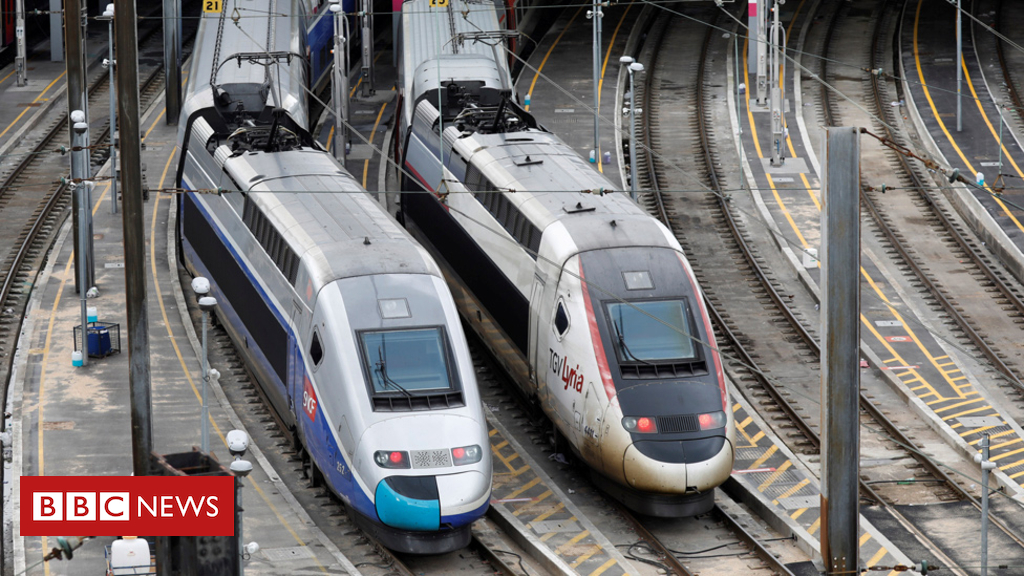
Image copyright
Reuters
TGV high-speed services will be among those hit
A major strike by workers at the French state railway SNCF - including train drivers - is expected to paralyse rail travel across France.
Three months of train stoppages are set to begin on Monday evening, as trade unions push back against President Emmanuel Macron’s labour reforms.
Le Parisien newspaper says most people will be able to get home normally after Easter weekend before the trains stop.
The waste collection, electricity and energy sectors also expect strikes.
On 22 March, tens of thousands of teachers, nurses and other workers joined rail staff on strike - a sign of widespread opposition to Mr Macron’s plans for state sector liberalisation.
SNCF workers enjoy generous conditions, including automatic annual pay rises, early retirement, 28 days of paid annual leave and protection from dismissal. Their close relatives are also entitled to free rail tickets.
The Macron government wants to phase out the special SNCF contracts, proposing to put new hires on contracts like those that apply elsewhere in industry.
The aim is to open up the state railways to competition from 2023, in line with EU requirements.
SNCF is struggling with big debts.
Test of union clout
A senior SNCF manager, Alain Krakovitch, told Le Parisien that only 12% of high-speed TGV trains would operate on Tuesday, and the low-cost Ouigo service would be at a standstill.
But international services would be only marginally affected, he said, with about 75% of Eurostar trains running.
It is expected to be the biggest wave of industrial unrest since Mr Macron’s election last May.
Employees of Air France, who are demanding a 6% pay rise, have already begun industrial action.
It will be a major test of the French trade unions’ clout. Just over 11% of the French workforce is unionised - one of the lowest levels in the EU - but the unions traditionally punch above their weight, economically and politically.
Strikes in September failed to stop Mr Macron passing laws that make it easier for firms to hire and fire.

Be the first to comment